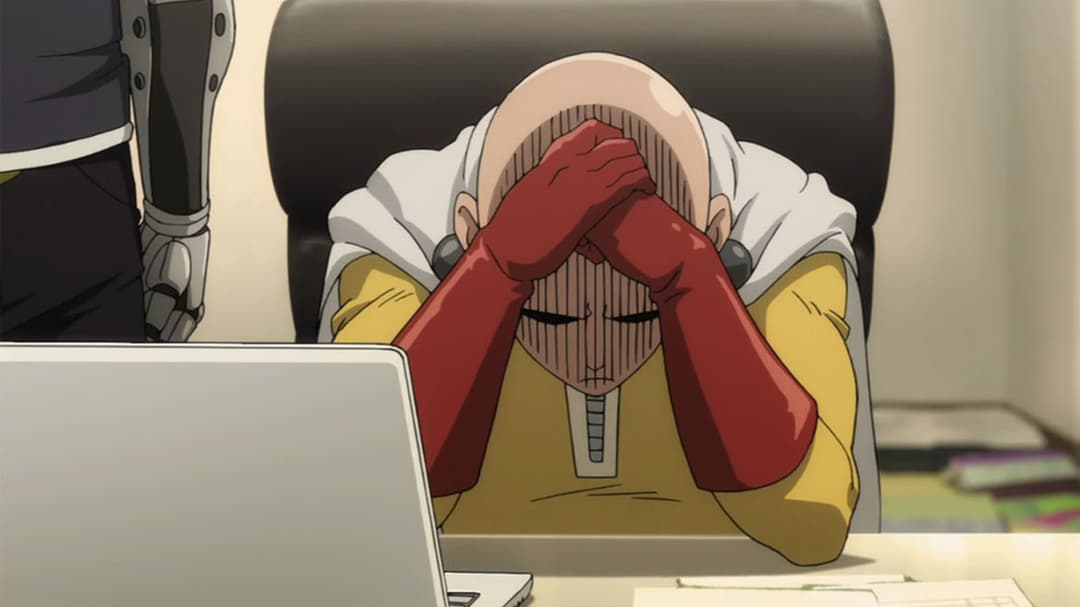Entertainment
One Punch Man Season 3 Director Quits Social Media Amid Harassment

The director of the acclaimed anime series One Punch Man, Shinpei Nagai, has deactivated his account on X (formerly Twitter) due to intense online harassment following criticism of the show’s animation quality in its third season. Nagai’s decision reflects the ongoing struggles faced by creators in the anime industry as they navigate fan expectations and public backlash.
Since its debut in 2015, One Punch Man garnered widespread acclaim for its exceptional animation and engaging storytelling. The first season, produced by Madhouse, set a high standard with its breathtaking visuals. However, the second season, released in 2019 and handled by J.C. Staff, was met with disappointment as fans noted a significant decline in animation quality. The shift in production studios contributed to a perception of decreased visual fidelity, leaving many fans frustrated.
With hopes that the third season would rectify these concerns, production once again fell to J.C. Staff. Unfortunately, early reactions suggested a continuation of the previous season’s visual issues. Nagai addressed the growing discontent directly, stating that the negative attention had become overwhelming, prompting him to step back from social media.
In a statement on X, Nagai expressed his disappointment over the behavior of some fans. He noted, “There are a few people among my followers who are pretending to be allies but are actually engaging in rage-baiting.” He further elaborated on how these actions, including misrepresenting his statements and exploiting the situation for personal gain, have made it untenable for him to continue online.
Nagai emphasized the toll this environment has taken on his mental health, declaring, “It’s always the genuine fans who end up suffering the most. I cannot forgive those who tarnish the staff’s honor or exploit the struggles of the creators for profit through hate.” He concluded with gratitude for the supportive fans and an apology for his departure from the platform.
This incident is not isolated within the anime industry. Numerous creators have faced harassment and threats, highlighting a troubling trend. For instance, Hajime Isayama, the author of Attack on Titan, received over 1,000 death threats following the series’ release. Similarly, voice actors in the industry have been targeted, with one actress receiving threats severe enough to result in legal action.
In September 2023, prior to deactivating his account, Nagai had already defended the visuals of One Punch Man’s third season, urging fans to refrain from harassment and to respect non-disclosure agreements that prevented him from sharing detailed responses.
As the series continues, it faces a challenging reception; the premiere of season 3 received a lower rating than the recap episode, marking an unprecedented moment in the show’s history. The ongoing reaction from fans indicates that the conversation surrounding animation quality and creator accountability in the anime industry remains a pressing issue.
The outcome of these developments raises questions about the relationship between creators and their audience, particularly in an era where social media amplifies both praise and criticism. As creators like Nagai step back from public platforms to safeguard their well-being, the industry may need to reevaluate how it engages with passionate fans while fostering a more supportive environment.
-

 Health2 months ago
Health2 months agoNeurologist Warns Excessive Use of Supplements Can Harm Brain
-

 Health2 months ago
Health2 months agoFiona Phillips’ Husband Shares Heartfelt Update on Her Alzheimer’s Journey
-

 Science3 days ago
Science3 days agoBrian Cox Addresses Claims of Alien Probe in 3I/ATLAS Discovery
-

 Science1 day ago
Science1 day agoNASA Investigates Unusual Comet 3I/ATLAS; New Findings Emerge
-

 World2 months ago
World2 months agoCole Palmer’s Cryptic Message to Kobbie Mainoo Following Loan Talks
-

 Entertainment3 months ago
Entertainment3 months agoEmmerdale Faces Tension as Dylan and April’s Lives Hang in the Balance
-

 Entertainment3 months ago
Entertainment3 months agoLove Island Star Toni Laite’s Mother Expresses Disappointment Over Coupling Decision
-

 Entertainment3 months ago
Entertainment3 months agoKerry Katona Discusses Future Baby Plans and Brian McFadden’s Wedding
-

 Entertainment2 months ago
Entertainment2 months agoMajor Cast Changes at Coronation Street: Exits and Returns in 2025
-

 Lifestyle2 months ago
Lifestyle2 months agoEngland Flags Spark Controversy This Summer: A Cultural Debate
-

 Entertainment2 months ago
Entertainment2 months agoMasterChef Faces Turmoil as Tom Kerridge Withdraws from Hosting Deal
-

 World4 weeks ago
World4 weeks agoMassive Sinkhole Opens in Bangkok, Swallowing Cars and Causing Chaos









